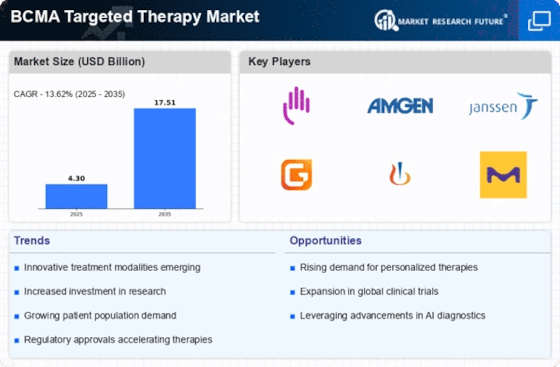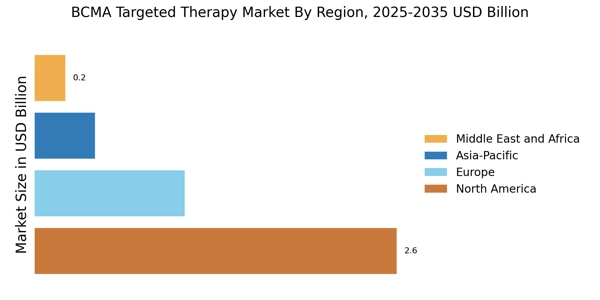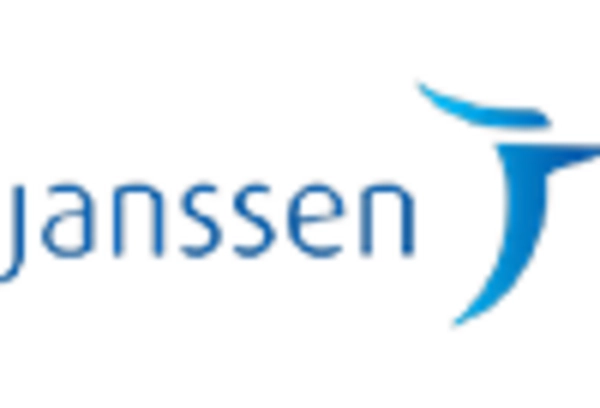Growing Awareness and Education
The rising awareness and education surrounding multiple myeloma and its treatment options are pivotal for the BCMA Targeted Therapy Market. Healthcare professionals and patients are increasingly informed about the benefits of targeted therapies, leading to higher adoption rates. Educational initiatives and advocacy programs are playing a crucial role in disseminating information about BCMA-targeted therapies, which are perceived as a breakthrough in treatment. This heightened awareness is expected to drive demand, as more patients seek out these innovative options. Consequently, the BCMA Targeted Therapy Market is poised for growth as awareness continues to expand.
Advancements in Precision Medicine
The shift towards precision medicine is significantly influencing the BCMA Targeted Therapy Market. This approach tailors treatment based on individual patient characteristics, including genetic profiles and disease characteristics. As research continues to unveil the molecular underpinnings of multiple myeloma, therapies targeting BCMA are becoming increasingly relevant. The market is witnessing a surge in the development of personalized therapies, which are projected to account for a substantial share of the overall oncology market. By 2025, the precision medicine segment within the BCMA Targeted Therapy Market could represent a notable percentage of total revenues, reflecting the growing emphasis on customized treatment regimens.
Rising Incidence of Multiple Myeloma
The increasing prevalence of multiple myeloma is a primary driver for the BCMA Targeted Therapy Market. As the population ages, the incidence of this hematological malignancy is expected to rise, with estimates suggesting that the number of new cases could reach over 30,000 annually in certain regions. This growing patient population necessitates innovative treatment options, thereby propelling the demand for BCMA-targeted therapies. These therapies, which specifically target B-cell maturation antigen, have shown promising efficacy in clinical trials, leading to heightened interest from healthcare providers and pharmaceutical companies alike. Consequently, the BCMA Targeted Therapy Market is likely to expand as more patients seek effective treatment alternatives.
Increased Funding for Cancer Research
The BCMA Targeted Therapy Market is benefiting from a notable increase in funding for cancer research. Governments and private organizations are allocating substantial resources to develop innovative therapies, including those targeting BCMA. In recent years, funding for cancer research has seen a significant uptick, with billions of dollars being invested annually. This financial support is crucial for advancing clinical trials and bringing new therapies to market. As a result, the BCMA Targeted Therapy Market is likely to experience accelerated growth, driven by the influx of capital aimed at discovering and developing effective treatments for multiple myeloma.
Regulatory Support for Innovative Therapies
Regulatory bodies are increasingly supportive of innovative therapies, which is a significant driver for the BCMA Targeted Therapy Market. Streamlined approval processes and incentives for breakthrough therapies are encouraging pharmaceutical companies to invest in BCMA-targeted treatments. Recent regulatory changes have facilitated faster access to novel therapies, allowing patients to benefit from cutting-edge treatments sooner. This supportive regulatory environment is likely to enhance the attractiveness of the BCMA Targeted Therapy Market, as companies are more inclined to pursue the development of these therapies, anticipating quicker market entry and potential profitability.

















